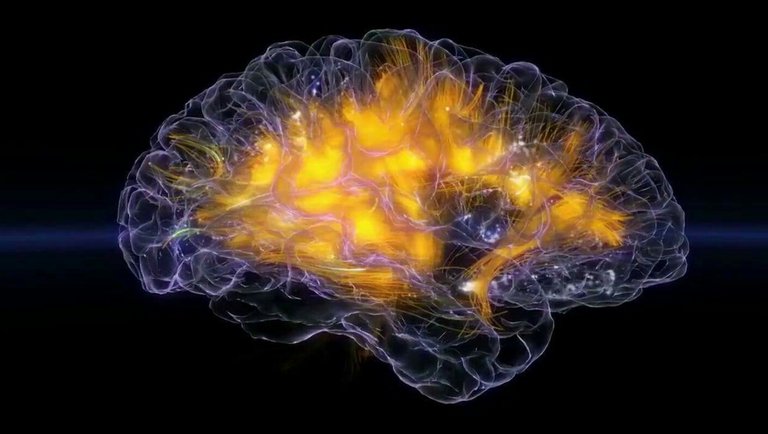
The concept of schizophrenia is dying. Harried for decades by psychology, it now appears to have been fatally wounded by psychiatry, the very profession that once sustained it. Its passing will not be mourned.
Today, having a diagnosis of schizophrenia is associated with a life-expectancy reduction of nearly two decades. By some criteria, only one in seven people recover. Despite heralded advances in treatments, staggeringly, the proportion of people who recover hasn’t increased over time. Something is profoundly wrong.
Part of the problem turns out to be the concept of schizophrenia itself.
Arguments that schizophrenia is a distinct disease have been “fatally undermined”. Just as we now have the concept of autism spectrum disorder, psychosis (typically characterised by distressing hallucinations, delusions, and confused thoughts) is also argued to exist along a continuum and in degrees. Schizophrenia is the severe end of a spectrum or continuum of experiences.
Jim van Os, a professor of psychiatry at Maastricht University, has argued that we cannot shift to this new way of thinking without changing our language. As such, he proposes the term schizophrenia “should be abolished”. In its place, he suggests the concept of a psychosis spectrum disorder.
Another problem is that schizophrenia is portrayed as a “hopeless chronic brain disease”. As a result, some people given this diagnosis, and some parents, have been told cancer would have been preferable, as it would be easier to cure. Yet this view of schizophrenia is only possible by excluding people who do have positive outcomes. For example, some who recover are effectively told that “it mustn’t have been schizophrenia after all”.
Schizophrenia, when understood as a discrete, hopeless and deteriorating brain disease, argues van Os, “does not exist”.
BREAKING DOWN BREAKDOWNS
Schizophrenia may instead turn out to be many different things. The eminent psychiatrist Sir Robin Murray describes how::
I expect to see the end of the concept of schizophrenia soon … the syndrome is already beginning to breakdown, for example, into those cases caused by copy number [genetic] variations, drug abuse, social adversity, etc. Presumably this process will accelerate, and the term schizophrenia will be confined to history, like “dropsy”.
Research is now exploring the different ways people may end up with many of the experiences deemed characteristic of schizophrenia: hallucinations, delusions, disorganised thinking and behaviour, apathy and flat emotion.
Indeed, one past error has been to mistake a path for the path or, more commonly, to mistake a back road for a motorway. For example, based on their work on the parasite Toxoplasma gondii, which is transmitted to humans via cats, researchers E. Fuller Torrey and Robert Yolken have argued that “the most important etiological agent [cause of schizophrenia] may turn out to be a contagious cat”. It will not.
Evidence does suggest that exposure to Toxoplasma gondii when young can increase the odds of someone being diagnosed with schizophrenia. However, the size of this effect involves less than a twofold increase in the odds of someone being diagnosed with schizophrenia. This is, at best, comparable to other risk factors, and probably much lower.
For example, suffering childhood adversity, using cannabis, and having childhood viral infections of the central nervous system, all increase the odds of someone being diagnosed with a psychotic disorder (such as schizophrenia) by around two to threefold. More nuanced analyses reveal much higher numbers.
Compared with non-cannabis users, the daily use of high-potency, skunk-like cannabis is associated with a fivefold increase in the odds of someone developing psychosis. Compared with someone who has not suffered trauma, those who have suffered five different types of trauma (including sexual and physical abuse) see their odds of developing psychosis increase more than fiftyfold.

Other routes to “schizophrenia” are also being identified. Around 1% of cases appear to stem from the deletion of a small stretch of DNA on chromosome 22, referred to as 22q11.2 deletion syndrome. It is also possible that a low single digit percentage of people with a schizophrenia diagnosis may have their experiences grounded in inflammation of the brain caused by autoimmune disorders, such as anti-NMDA receptor encephalitis, although this remains controversial.
All the factors above could lead to similar experiences, which we in our infancy have put into a bucket called schizophrenia. One person’s experiences may result from a brain disorder with a strong genetic basis, potentially driven by an exaggeration of the normal process of pruning connections between brain cells that happens during adolescence. Another person’s experiences may be due to a complex post-traumatic reaction. Such internal and external factors could also work in combination.
Either way, it turns out that the two extreme camps in the schizophrenia wars – those who view it as a genetically-based neurodevelopmental disorder and those who view it as a response to psychosocial factors, such as adversity – both had parts of the puzzle. The idea that schizophrenia was a single thing, reached by a single route, contributed to this conflict.
Hi! I am a robot. I just upvoted you! I found similar content that readers might be interested in:
http://themindunleashed.com/2017/08/concept-schizophrenia-coming-end-heres.html